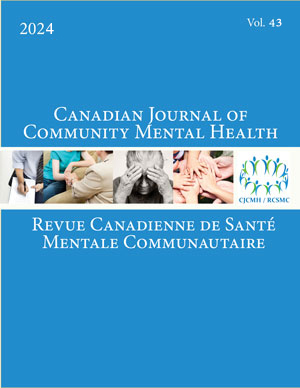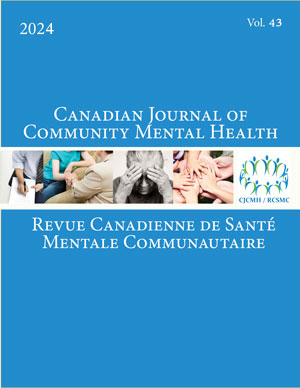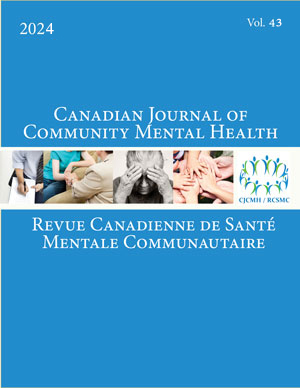Volume 17 • Number 2 • September 1998
OPEN ACCESS
OPEN ACCESS
This essay offers a consideration of English-language feminist memorial discourse as this has been sedimenting in Canada since the 1989 murder of 14 women at École Polytechnique. The author suggests that remembrance now, almost a decade after the murders, exceeds the terms offered by a politic in which the living and the dead are connected through feminist alignment [“it could have been me”]. In its place, the author argues that there is a binding relation to the dead that is forged through understanding the murders as an event of historical trauma and rupture. She then contemplates and explores the implications of this rethinking of an ethics of relation through a situated analysis of annual memorial vigils.
OPEN ACCESS
This paper describes the application of Habermas's communication ethics in resolving an ethical dilemma that arose in the daily operation of a women's hostel. By generating the conditions of practical discourse, several obstacles to an open, non-hierarchical discussion among staff were removed. The process aided the clarification of differing views within an atmosphere of mutual respect. The discourse resulted in a modification of usual practice that might not have been achieved if an unexamined interpretation of standard policy had been applied. Some difficulties and limitations of this adaptation are also described.
OPEN ACCESS
OPEN ACCESS
This paper explores the challenges for social service agencies which offer cultural interpretion services in their bid to meet the needs of service seekers and recipients from linguistic minorities. The author argues that cultural interpretation is provided by institutions that have done little more than add a service for clients from cultural minorities, while leaving intact their service structures—structures that have historically viewed language and “cultural differences” as problems. This orientation will need to change if these services are to be accessible and equitable for Canadians from linguistic and ethnic minorities. While cultural interpreters remain critical to service delivery, they need to work within institutions where service providers and administrators understand language as a cultural, social, and political instrument through which individuals articulate their identities, realities, and understandings of their cultural contexts and service needs. This paper concludes by identifying some of the ethical dilemmas and questions that attend the needed institutional changes.
OPEN ACCESS
Ethical concerns have always placed limits on research, but the spirit of the times has led to an expansion of the territory covered by ethics. This new approach is found in the code of ethics presently in final revision by the three major granting agencies. This code will give unprecedented power to “collectivities” in the research process. Some see this as a long overdue corrective to hit-and-run research, while others see it as a threat to unfettered inquiry. This paper argues a different point: Involvement of collectivities is essential for ethical research relationships, but it ought not to limit the sorts of questions we study or publication of the answers we find. The difference will be illustrated by two examples in which aboriginal communities asserted their collective rights against researchers. The difference between the examples will lead to an examination of the debate between those who believe community work is “all politics,” and those who try to underpin it with ethical principles. Finally, I argue that ethical practice requires a knowledge base created by valid research. We should support an improved relationship with host communities, but not let the political agendas of contending community groups constrain the questions we can ask about social problems or our assessment of measures designed to solve them.
OPEN ACCESS
Le présent article fait étal des délibérations de chercheurs en psychologie, en travail social et en santé publique, de juristes, d'intervenants, de gestionnaires et de membres d'un comité d'éthique réunis lors d'un séminaire portant sur les enjeux éthiques soulevés par un projet de recherche épidémiologique portant sur la violence è l'égard des enfants. Ce projet visait è établir le taux de prévalence des conduites è caractère violent envers la population des enfants et des jeunes québécois; il n'avait pas été reçu favorablement par un comité d'éthique dont les arguments sont brièvement présentés. Les principaux enjeux ont trait è la primauté des droits individuels de protection des enfants et des dparticipants relativement aux droits collectifs, aux statuts et rôles des chercheurs, aux règles éthiques associées è la validité et è la fiabilité de la recherche lorsque confrontées aux règles éthiques de l'intervention clinique, aux risques associés au non-signalement des enfants en comparaison è ceux associés au signalement systématique des situations identifiées par les chercheurs. L'ambiguité de la notion de «doute raisonnable» centrale è la loi de la Protection de la jeunesse et les problèmes opérationnels qui lui sont associés ont aussi été évoqués. Enfin, des pistes de solutions d'ordre législatif, juridique méthodologique et pédagogique sont avancées.










